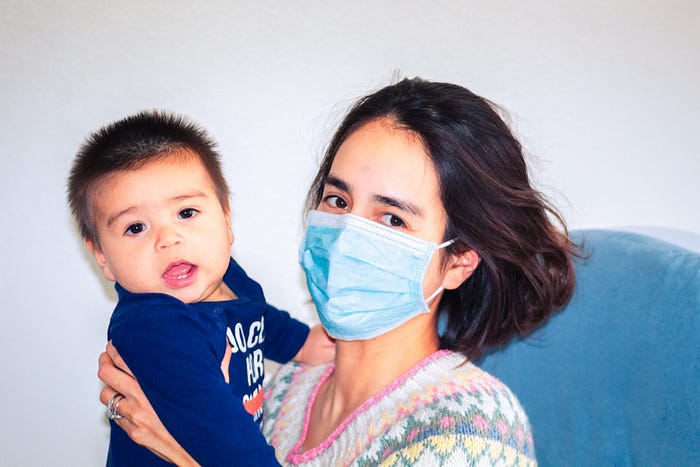Coping with quarantine
As we gradually increase the amount of time we spend in public life, some us may get exposed to COVID-19. If someone you know tests positive for COVID-19 and you have had close contact with that person, the health department will ask you to stay in your home for 14 days. If quarantining in your home is not possible for you, then they will help you find a safe place to stay. Here are some things to remember about quarantine.

Why am I being asked to quarantine?
You are being asked to quarantine because you have been exposed to COVID-19. We don’t know if you will get sick or not. Not everyone who gets exposed to a virus catches the virus.
- If you do get COVID-19, you will be contagious during the 2–3 days before you get symptoms — before you even know you have it!
- Almost everyone who gets symptoms of COVID-19 will get them within 14 days. Most people will get symptoms around 5–7 days after being exposed.
- The purpose of the quarantine is to keep you from spreading COVID-19 to others between the time when you learn someone you know has tested positive for COVID-19 and when you develop symptoms.
But I feel fine
Yes! You feel well during quarantine! Since quarantine happens before you get any symptoms of COVID-19, you feel like you normally do during quarantine.
- Since you might develop symptoms of COVID-19 over the next 14 days, you might want to prepare for a time when you don’t feel that well. Line up some deliveries of things that comfort you when you are sick. Fever reducer, gripping novels, that chicken soup with the little stars in it.
- You feel well, but keep your expectations low around productivity. If you already work from home, you can continue that. But maybe don’t set too many other goals for this time. Quarantine is a stressful time. The uncertainty around whether you have caught COVID-19 and the daily monitoring of your health may make it difficult to focus on too much.
14 days is a long time
Find ways to reduce stress while counting down the days.
- Consider how you will help the children count down the days. Would they like to make a chain out of 14 construction paper rings and tear one off each day? Can they count down the days on a calendar? Is there a special treat they can have each day of quarantine?
- Reach out to your friends and family. Don’t let the chaos and noise of social media define your whole social life! Those real connections will help you deal with uncertainty and stress. Asking for help is hard, but people love to help! Maybe they have great ideas for entertaining kids at home or recommendations for your Netflix queue. Remember, your friends and family are worried about you and this quarantine. They need frequent updates anyway.
- This may be a good time to begin some small practices that can help with stress, like using a meditation app or starting a gratitude journal — each day write down three things from the day you are grateful for.
What happens at the end of 14 days?
If you developed symptoms of COVID-19 during your time in quarantine, you will need to continue to isolate yourself until the fever has been gone for 3 days and your other symptoms have cleared up. If you did not develop symptoms, you will likely be able to rejoin public life. If your situation requires something different, the local health department will let you know.
Essential workers
Centers for Disease Control and Prevention issued guidance that allows essential workers to continue to work after they have had close contact with someone diagnosed with COVID-19, if they do not feel sick and if they take the following steps to protect the community and their coworkers:
- The employee must take their temperature every day before starting work.
- The employee must wear a face mask at all times while in the workplace for 14 days after last exposure. This can be a face mask issued by the employer or, if these are not available, the employee can wear a cloth face covering.
- The employee needs to maintain six feet of distance between themselves and other people as work duties permit in the workplace.
- The employer should clean and disinfect all areas such as offices, bathrooms, common areas, and shared equipment routinely.
Practice compassion
Finding intentional ways to be kind to others can improve your mood and help manage stress. Every day, go out of your way to be kind to someone else.
More information
Stay tuned to our blog for more information on how you can help stop the spread of COVID-19. Sign up to be notified whenever we post new articles.
Information in this blog changes rapidly. Check the state’s COVID-19 website for up-to-date and reliable info at coronavirus.wa.gov.
Answers to your questions or concerns about COVID-19 in Washington state may be found at our website. You can also contact our call center at
1–800–525–0127. Hours: 6 am-10 pm, seven days a week.
Department of Health call center: 1–800–525–0127, 6 a.m. to 10 p.m, seven days a week
Please check our website for the most up-to-date info on Washington’s response to COVID-19 at www.doh.wa.gov/coronavirus.
